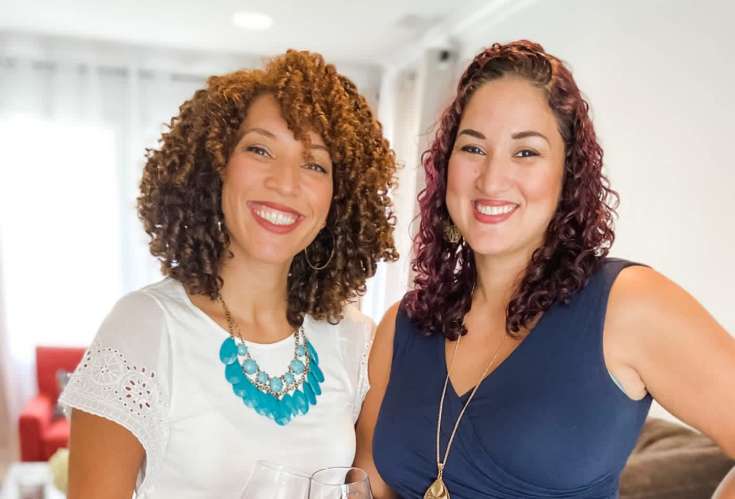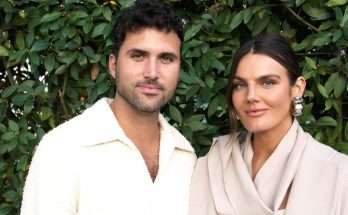
We’re sisters who grew up financially insecure. Today, each of us has a net worth of six figures and we teach others about how to build wealth through our financial education company Winenance.
While we are now on the road to financial independence, this wasn’t always the case. Here’s how we got started and our top tips for people also trying to get started.
Our challenges, and our choices, early on
As young adults, though we prioritized stability, we didn’t have a toolkit of good financial habits. We also didn’t have college funds. Still, our mom made it clear that not going to college wasn’t an option. So we both enrolled in community college while working low-wage jobs that barely covered the cost of tuition.
More from Grow:
I started investing $50/month when I was 19: Now my goal is $1 million
How to talk with your parents about their estate plan
Retirement calculator: Figure out how much money you need to retire
Then, in our early 20s, we found ourselves perpetuating the cycle we were so desperate to get out of. Because our mom had taken out debt in our names, we weren’t qualified to open up more lines of credit, except for the kind that came with sky-high interest rates. When you need a car in order to go to work, it’s easy to put aside your debt aversion and take out the loan, even if it charges 11% or more in interest. That’s what we did.
Over time, we were able to find jobs that allowed us to comfortably pay for our living expenses and debts without the fear of financial strain. But there was still a lot we didn’t know. On paper, we were both responsible and successful, but we struggled with our savings and we weren’t actively contributing to our retirement accounts.
At the same time, as it does for many 20-somethings who are starting careers, lifestyle creep found its way in.
But by shifting our mindsets and using some key strategies, we were able to make our money work for us. Here are some of the most valuable lessons we learned.
Paying bills on time is one piece of the financial freedom puzzle
It took Marie six years of paying for classes out of pocket, plus $14,000 in student loans, but after she graduated in 2007 with a B.A. in communication studies, she landed a salaried public relations job. From the outside, Marie may have looked like she had it all — a great paying job, an apartment, an Audi convertible she paid cash for, and $120 monthly student loan payments she could afford. But her finances told a different story.
Marie decided to run out the clock on the debt acquired in her name rather than paying it off to increase her credit score. With her credit score in the low 600s, she lived with roommates because she couldn’t get a lease in her name, and couldn’t qualify for good credit cards. She was only able to save the $12,000 to buy the convertible by avoiding contributing to her company 401(k) plan or using that money to pay her student loan debt in full.
After barely contributing to her retirement savings for most of her 20s, Marie prioritized her 401(k) in her 30s. But she still found it difficult to navigate the provider website and to understand basic investing terms.
Video by Stephen Parkhurst
She began to research 401(k) investing, and along the way found FIRE (Financial Independence Retire Early) blogs like GoCurryCracker! and investing resources like the JL Collins Stock Series. Marie also began investing in index funds, and in 2015, slowly started curbing expenses and applying any extra income to investment accounts.
This meant tracking expenses for the first time in her life using tools like Personal Capital and Mint, creating a budget spreadsheet, and perhaps most importantly, learning how to spend with intention.
And in 2018, Marie bought a 1999 Subaru Outback. It was affectionately dubbed the “FI Wagon.” She bought it on Craigslist for $1,200, after using Kelly Blue Book to negotiate the price. She made the purchase two weeks before she was set to start a new job with a six-figure salary. 2018 was also the first year she fully maxed out her 401(k), and reached a six-figure net worth.
Spend where you find value, save where you don’t
After two years of community college, Stephanie decided to forgo a degree and head into the workforce full time. She went from pharmacy technician shifts between classes to a software quality assurance role at an e-prescribing company, which led to her current career in the field of test engineering.
At age 24 and recently married, Stephanie began working hard to pay down her debts while limiting new debt, and working to improve her credit score. Knowing she eventually wanted to own a home, she spent the next three years putting every extra dollar towards paying off her auto loan and other debts, as well as saving for a down payment.
She began by paying off the low balance debts first, then aggressively paid down the high interest debts. She was able to nearly pay off all debts, and then turn those former payments into savings for a down payment. At 27, Stephanie was able to buy a home — something our parents were never able to do.
However, she used almost all of her savings to do it, and she did not think beyond saving for the next big ticket item, and certainly not her retirement. To avoid further debt, Stephanie prioritized saving cash for any large expenses, but she never focused on saving beyond the immediate future or building wealth.
Stephanie learned from Marie how simple, and most importantly, not scary, investing can be. It wasn’t long before Stephanie took an interest in the FIRE movement as well. She began tracking her expenses, spending where she found value, and saving where she didn’t.
By 2015, four years after buying her first house, she started to make her 401(k) contributions a top priority too. And in 2017, Stephanie had reached a six-figure net worth.
Draw on your experience and passion to create a side hustle
In 2017, Stephanie suggested we take the investing knowledge we had learned, put it in a PowerPoint presentation, and invite our girlfriends over on Saturday night for some wine, cheese, and to learn about index funds and retirement accounts, and so Winenance was born.
At that point, we were both seeing gains in our portfolios and both averaged close to a 20% rate of return thanks to investing in low-cost index funds. As of 2020, we both had multi-six-figure net worths.
Remember that every dollar has a job
On our journey to financial independence, one of the most important things we’ve learned is that every dollar has a job, whether you give it one or not. If the idea of maintaining a budget seems daunting, start small. Begin tracking your monthly expenses and spending habits. We’re personally fans of apps like Mint or Personal Capital.
One of our favorite personal finance podcasters, Paula Pant, says, “You can afford anything, just not everything.” To us, intentional living is not about deprivation or sacrificing the things you enjoy, but investing and spending on the things that are valuable to you.
Video by Courtney Stith
Adopting this intentional mindset around where and how you spend your money will help control cash flow and free up more money to save and invest. For example, if quality food and nice meals are where you find value, you could focus on spending in that category, but you may need to pull back in another.
We’ve learned that building the life you deserve isn’t about luxury signifiers or having the biggest house. It’s about finding the things that bring you purpose, fulfillment, and joy, while balancing the cost versus value in the choices you make.
Your time is ultimately one of your greatest assets. As Warren Buffett says, “If you don’t learn to make money while you sleep, you will work until you die.” A big part of our financial journey has been finding the ways to make our money work for us, taking steps like maintaining high-yield saving accounts and investing in low-cost index funds.
Our FIRE journey has helped us spend more time on the things that matter to us. Now, we are aiming to grow $1,000,000+ portfolios. And with Winenance, we teach other working professionals how to achieve their biggest financial goals.
Marie Coleman-Johns and Stephanie Stockwell are the “Sisters of Financial Independence” and the founders of Winenance, a personal finance education company. Through their podcast, “The Winenance Show,” YouTube videos, virtual and in-person workshops, and their online content, Marie and Stephanie teach working professionals how to maximize their employer benefits and investment options to grow wealth and build the life they deserve.
The article “Sisters Who Women From Financially Insecure to 6-Figure Net Worths: Our Top Tips for Growing” originally published on Grow+Acorns.


